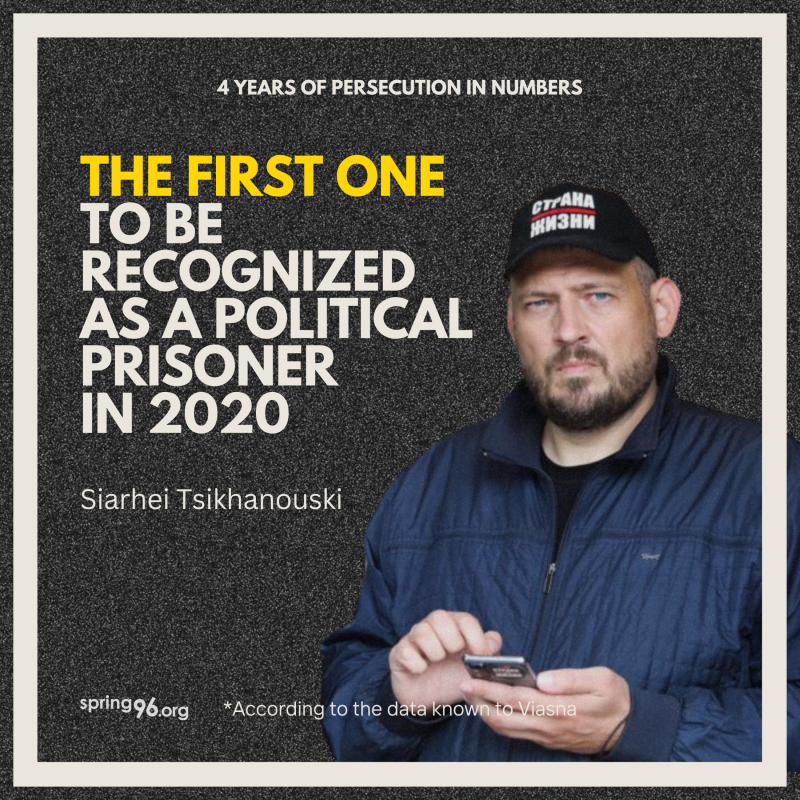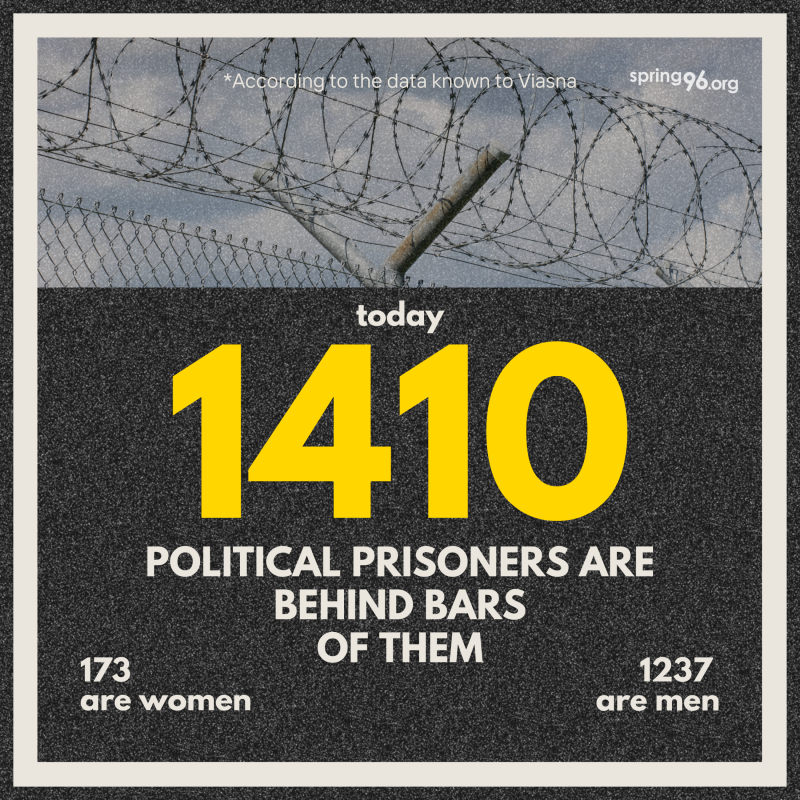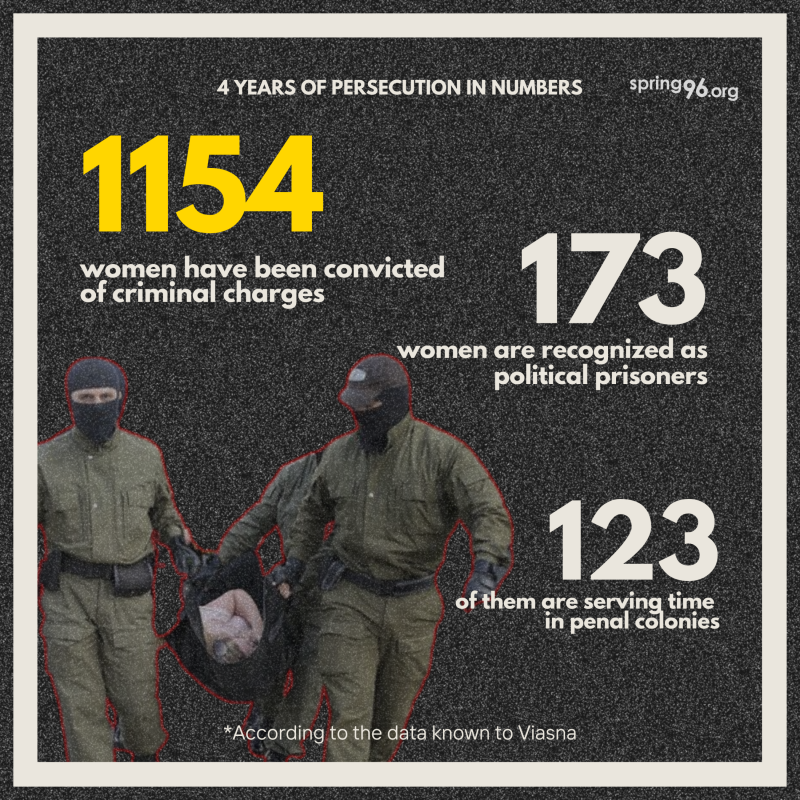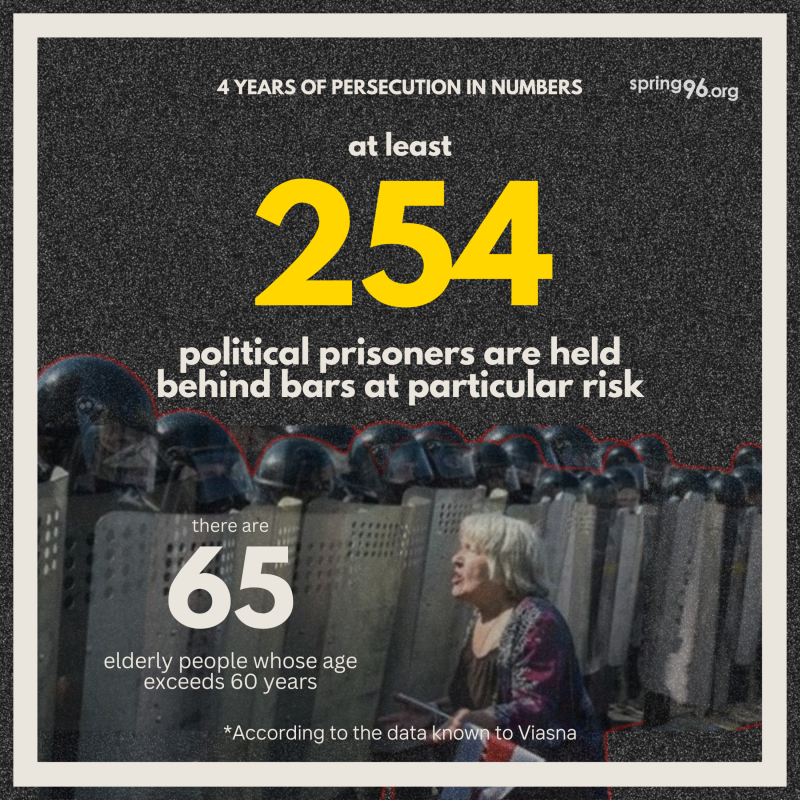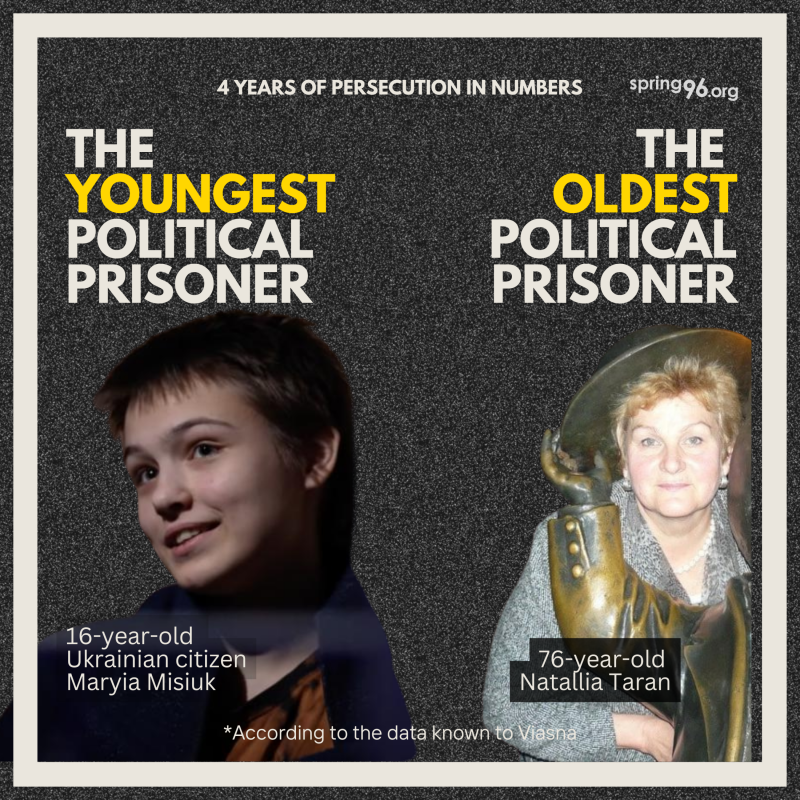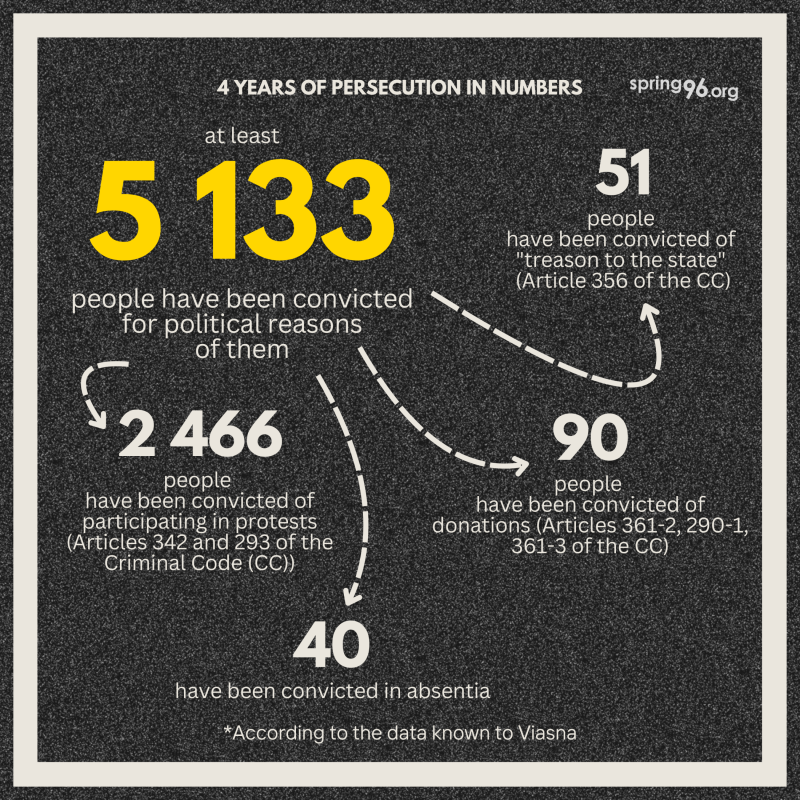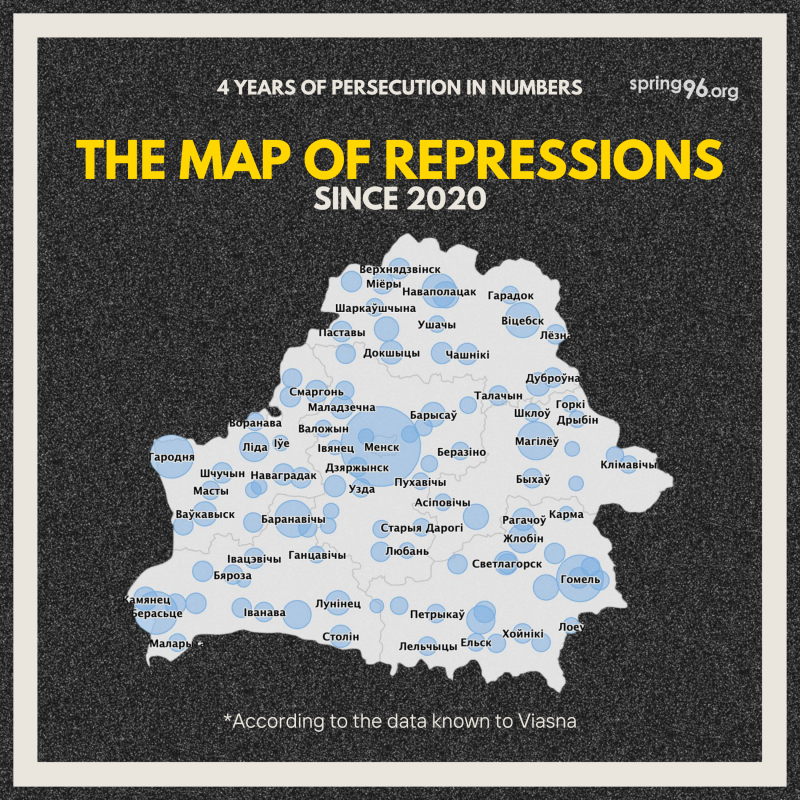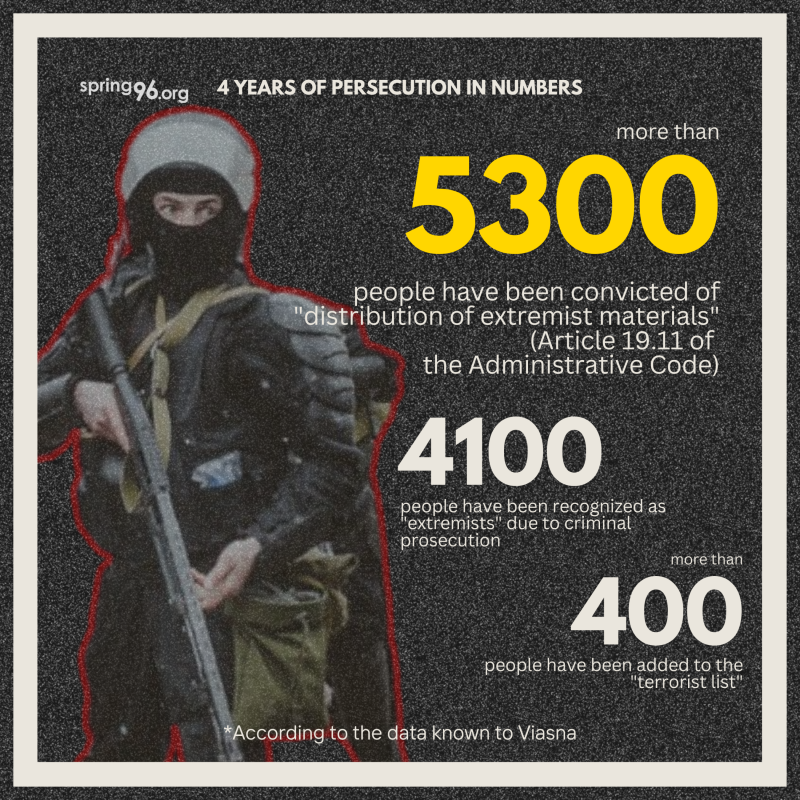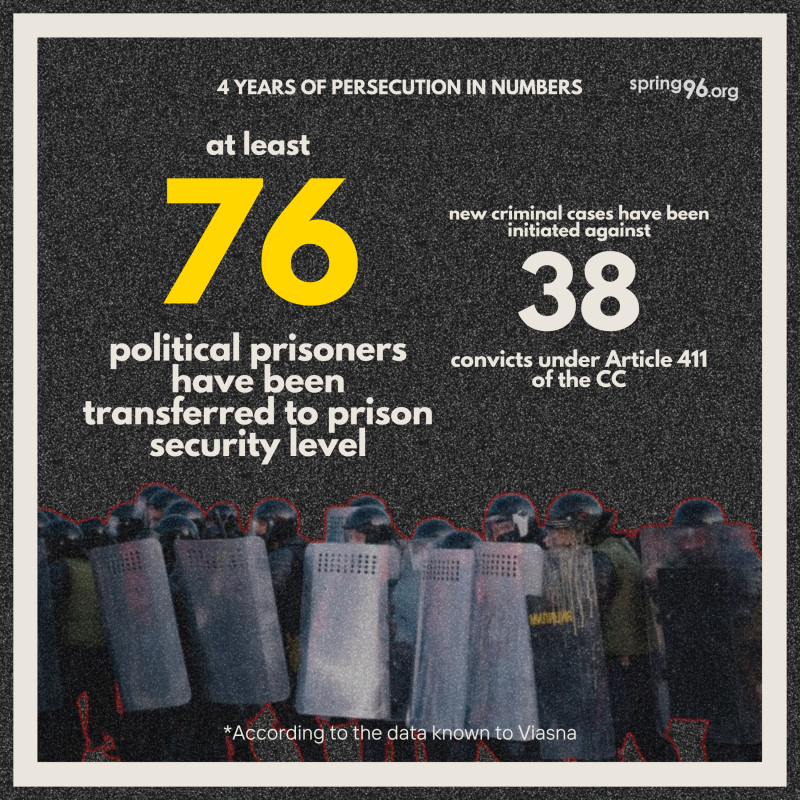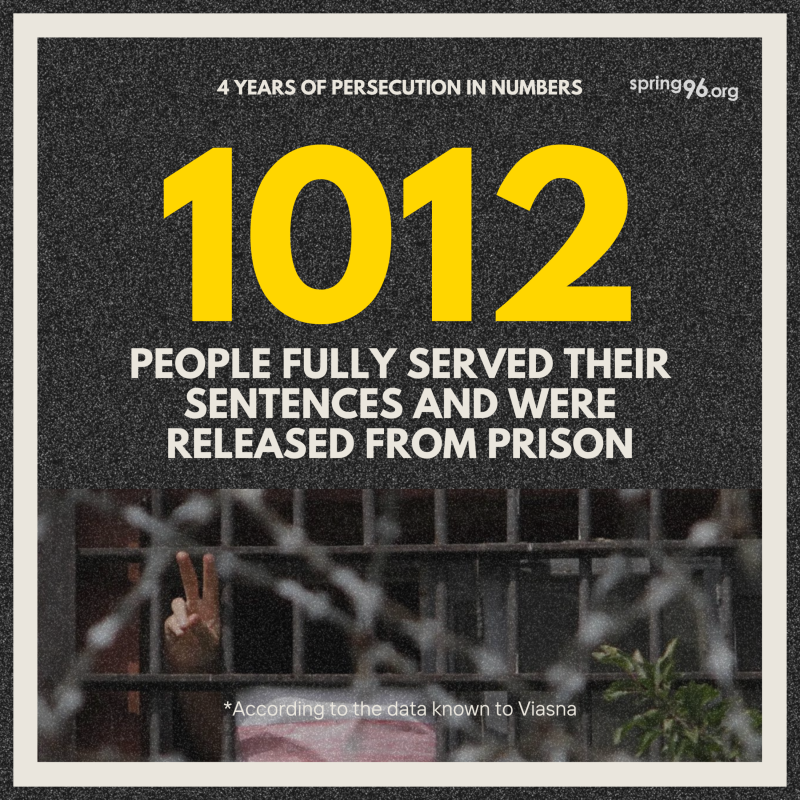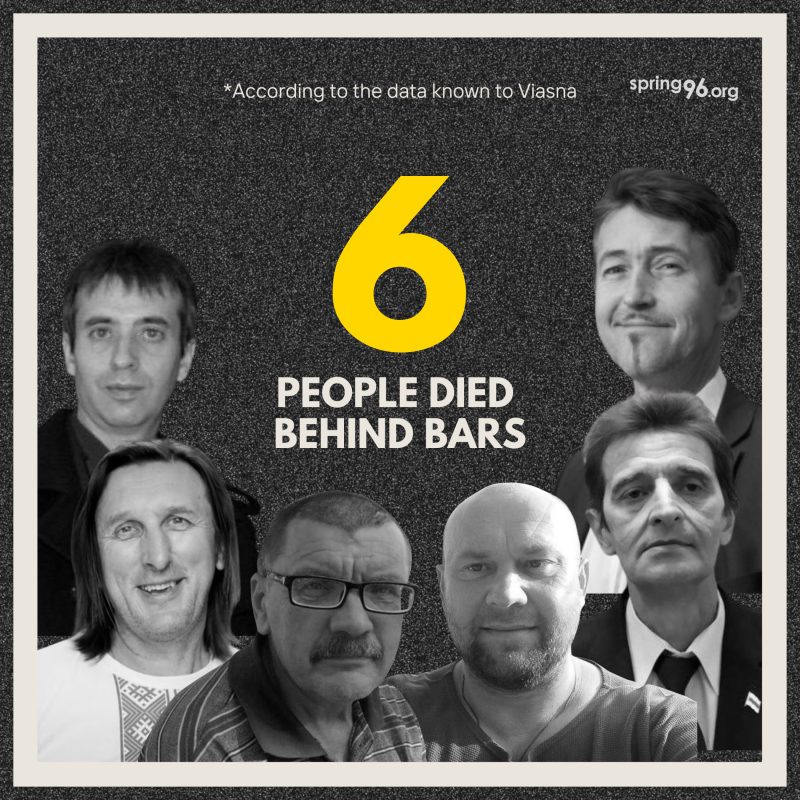At least 5,133 convicted in criminal cases: four years of persecution in numbers
The detention of Siarhei Tsikhanouski, a blogger who created a popular YouTube channel Country for Life, and other participants of a signature collection event in Hrodna on May 29, 2020 began a wave of mass persecution in Belarus, which continues to this day. Four years ago, on June 1, 2020, Tsikhanouski was recognized as a political prisoner, the first one for the events of 2020. Since then, thousands of people have been detained, beaten, and tortured, sentenced to days or years of imprisoned for political reasons. As of May 29, 2024, there are 1,410 people on the list of political prisoners, 173 of whom are women.
These has been four years — 1,461 days — of continuous persecution of civil society for disagreeing with the actions of the authorities; of daily detentions of people who read the news on independent media, express solidarity with political prisoners, and support Ukraine in the war against Russia; of thousands of Belarusians being forced to leave their homes due to the threat of political persecution; of six Belarusians dying in custody, unable to receive high-quality medical care on time. Today, Viasna reports the numbers reflecting the four years of unprecedented brutal mass persecution in the country.
Siarhei Tsikhanouski is the first political prisoner in Belarus for the events of 2020. Four years ago, on May 29, 2020, during the collection of signatures of citizens supporting the nomination of Sviatlana Tsikhanouskaya as a presidential candidate, the head of the initiative group and blogger who created a popular YouTube channel Country for Life Siarhei Tsikhanouski and at least 15 other citizens who took part in that event were detained in Hrodna. Thousands of spectators of the live broadcast and dozens of participants of the event witnessed the provocation and detentions. A day later, the human rights defender was recognized as a political prisoner.
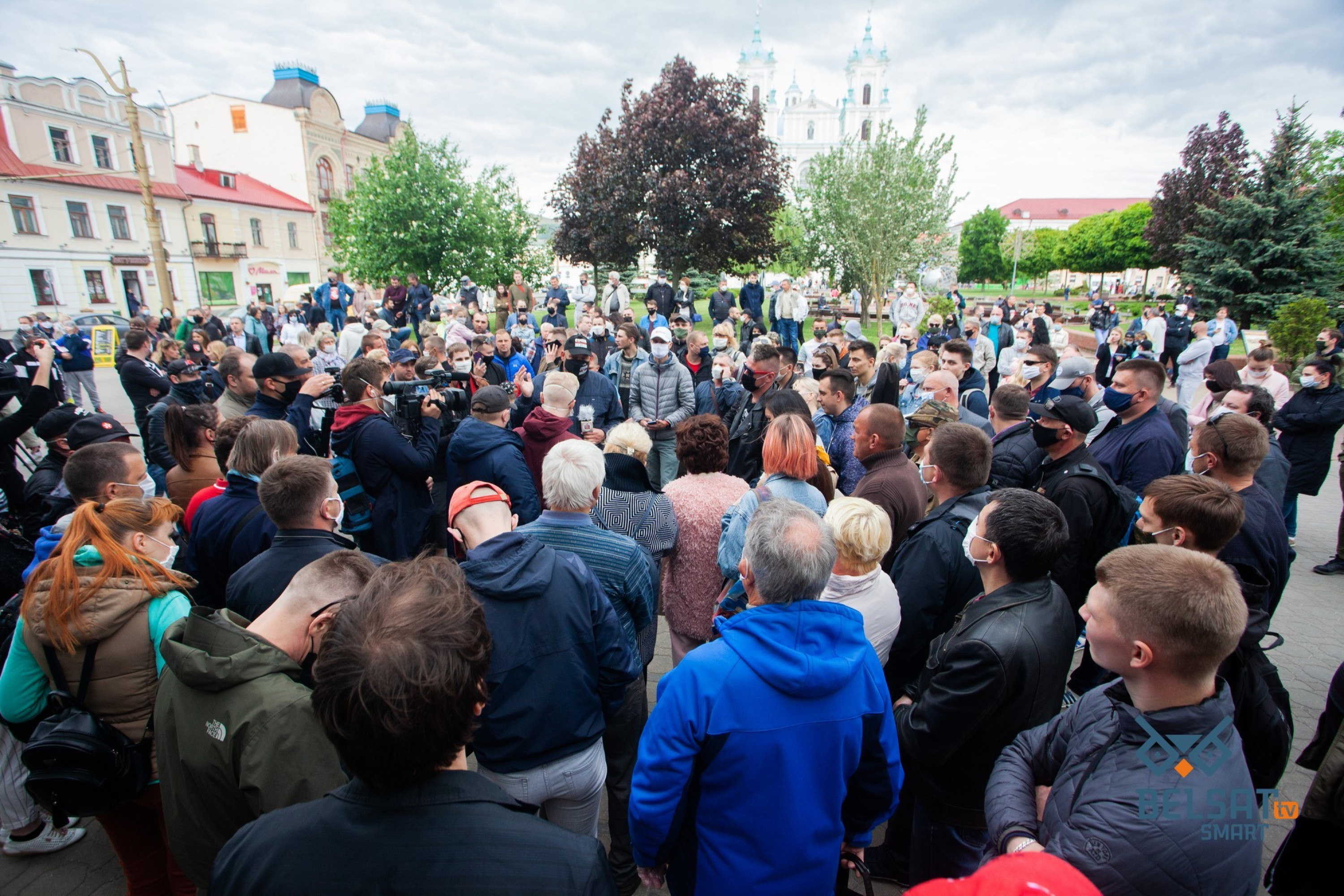
Four years since the day of mass detentions in Hrodna: what happened to the defendants in the Tsikhanouski case
As of May 29, 2024, there are 1,410 political prisoners in Belarus. The majority of political prisoners are men: 1,237 people. There are also 173 imprisoned women.
Since 2020, more than 8,000 women have been persecuted in Belarus for fighting for social and political rights and expressing their opinions, 1,154 of whom were convicted in criminal cases. To date, there are 173 women political prisoners in Belarus, and 123 of them are currently serving their time in colonies.
Human rights defenders are aware of at least 254 political prisoners who are at particular risk behind bars. Among them are 16 people with disabilities, 91 people in a poor health condition, 65 elderly people whose age exceeds 60 years (many of them have serious health problems), as well as ten people with mental disorders.
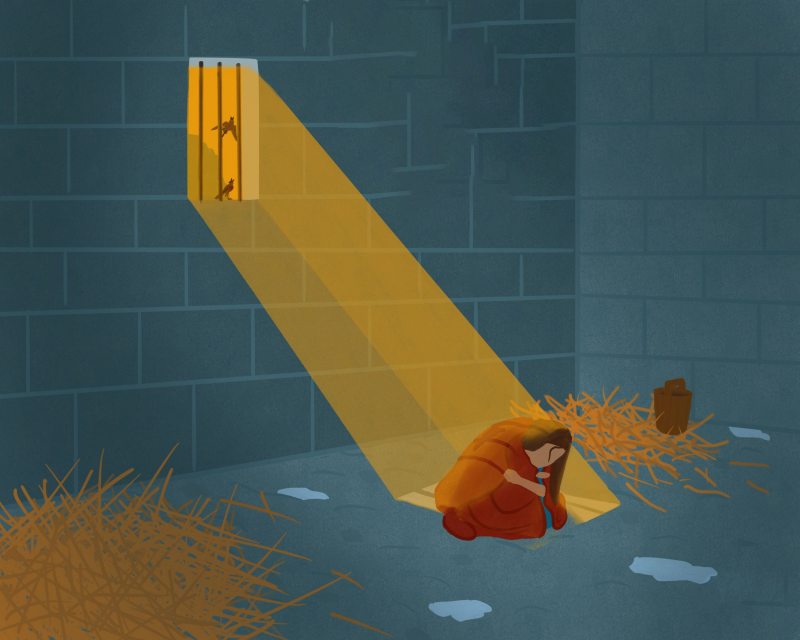
"I'm probably just going to die here": The situation of political prisoners from vulnerable groups
74-year-old Belarusian political prisoner Natallia Taran remains the oldest; she was sentenced to three and a half years in a penal colony under defamatory articles of the Criminal Code.
And the youngest political prisoner is 16-year-old Ukrainian citizen Maryia Misiuk, who, according to propagandists, allegedly "created the anarchist cell Black Nightingales under the leadership of the National Liberation Army of Ukraine."
In just four years, at least 5,133 political sentences in criminal cases have been handed down in Belarus, 40 of which were the results of trials "in absentia" in the framework of special proceedings. At least 2,466 people were convicted of participating in post-election protests in 2020 under Articles 342 and 293 of the Criminal Code.
In addition, the authorities began to actively persecute Belarusians for "donations" to many funds and initiatives which help victims of repression. Some people are called to the KGB and, out of court, are asked to donate amounts many times more than donations, threatened with a criminal case. But some donators are immediately detained as part of a criminal case. Thus, a total of 90 people have already been convicted under Articles 361-2, 290-1, and 361-3 of the Criminal Code.
At least 51 people were convicted of "treason against the state" under Article 356 of the Criminal Code. The vast majority of them are sentenced to imprisonment.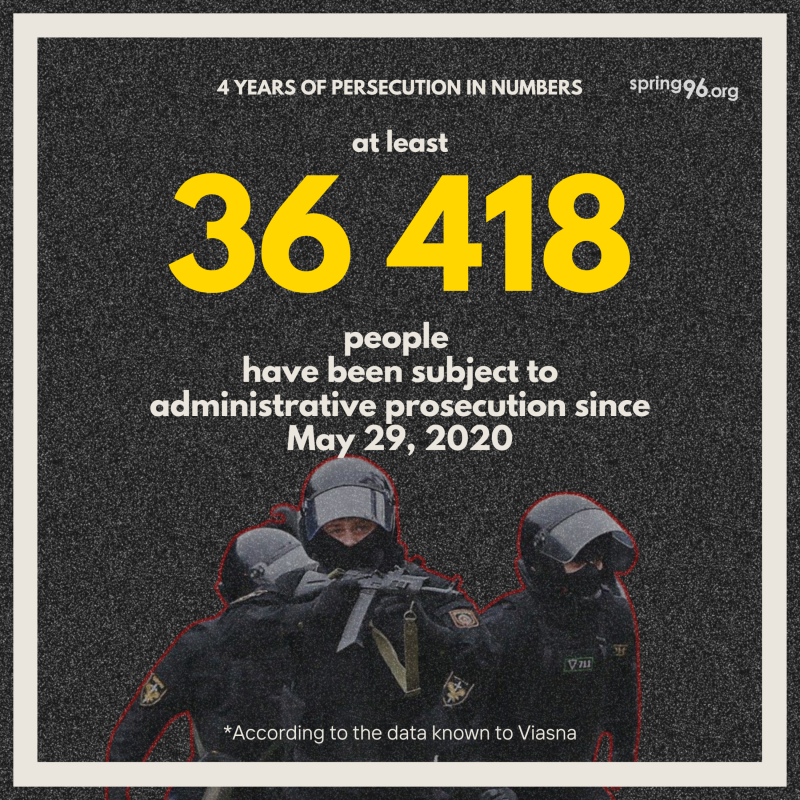
At least 36,418 people have been subjected to administrative prosecution since May 29, 2020. Thousands of people passed through the days of detention in terrible conditions of Belarusian temporary detention facilities.
Security forces are persecuting people all over Belarus and even in small towns.
At least 5,300 people were convicted of "distributing extremist materials" under Article 19.11 of the Administrative Code. The basis for persecution is usually subscriptions to "extremist" channels or forwarded private messages with news from independent media.
Since 2020, 4,100 people have been included in the "list of extremists". And the KGB has added more than 400 Belarusians to the "list of terrorists".
According to Viasna, the punishment of at least 114 political prisoners was increased for "violating the internal order of the correctional institution." At least 76 political prisoners were transferred to prison security level and new criminal cases were initiated against 38 more.
Since the first sentences in politically motivated criminal cases, at least 1,012 political prisoners have served their sentences in full and been released.
This year was already the third anniversary of the death of political prisoner and activist Vitold Ashurak in Škloŭ colony No. 17. Since then, five more political prisoners have died imprisoned: Mikalai Klimovich, Ales Pushkin, Vadzim Khrasko, Ihar Lednik, and Aliaksandr Kulinich.



